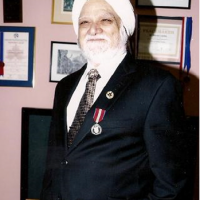Spiritual concepts are often given complicated explanations. Sat-chit-ananda is one such concept taken to mean the same as God or Brahmn, Universal Consciousness. This and other similar definitions make the intensely personal sat-chit-ananda impersonal for the normal seeker.
Scriptures describe ananda as bliss that is Brahmn. The Taittriya Upanishad (3.6.1) says: “He, Bhrigu, taught by Varuna, realised that ananda is Brahmn…” But, we forget that in the Upanishads, these concepts were imparted to those like Bhrigu who had prepared minds and could understand their proper context and meaning. For lay seekers nowadays, these are dictionary meanings that do not increase their understanding. Hence the need to use more accessible terms.
Ananda is simply ‘happiness’ but on a higher scale than the ordinary joy that we feel in our everyday lives. Like the wonderful fragrance of flowers that waft toward you while approaching a divine garden, the advanced seeker starts getting glimpses of this higher joy while nearing the sat-chit-ananda stage.
In quiet moments, laughter bubbles up from the heart, without any apparent reason. Sometimes, in the mind, there is a feeling of spontaneous joy, which is not related to anything happening at that time. During such moments, the leaves appear greener, the light brighter and nature, most benign. The mind soars, leaving one causelessly happy. This feeling comes and goes at this stage since one has not reached the garden. Inside the garden, ananda becomes permanent.
The ‘causelessness’ is only apparent. There is a cause that we do not realise at this stage. The cause is chit. Ananda is inextricably embedded in chit. What is chit? At the start of the Kena Upanishad the pupil asks, “By whom willed and directed, does the mind light on its objects? By whom commanded does life move? At whose will do people utter speech? And what god is it that prompts the eye and the ear?”
The master replies, “… it is the ear of the ear, mind of the mind, speech of the speech, and eye of the eye….” In brief, it is consciousness that is the mover of all our senses. That, indeed, is chit. But we have our chit from the moment we are born till we die and even after that, for consciousness is said to be immortal. Why, then, do we not have ananda all the time?
The answer is this: Chit, consciousness, is always filled with joy, ananda. That is its true nature. However, as long as we identify with our physical body-mind, the true nature of chit is masked by our ego-mediated mind. We remain outside the fragrant garden and, though the fragrance is there, we cannot sense it because our senses are attuned only towards our day-to-day world.
This brings us to sat. The fragrant garden is the domain of sat, the Truth. Not truth as opposed to the mundane word ‘lie’ but ‘real’ truth as opposed to a mirage. This is also known as the Infinite. It’s the essence of Brahmasmi.
When one overcomes identification with body-mind, the physical senses fade away. Then sat shines and the seeker identifies with his real chit. The mask drops and ananda prevails.
Living in this permanent state of happiness is sat-chit-ananda. It is everyone’s true nature, were we but to stop identifying with our mundane body-mind and know our real infinite selves.


 Share on bsky
Share on bsky




Read 0 comments and reply